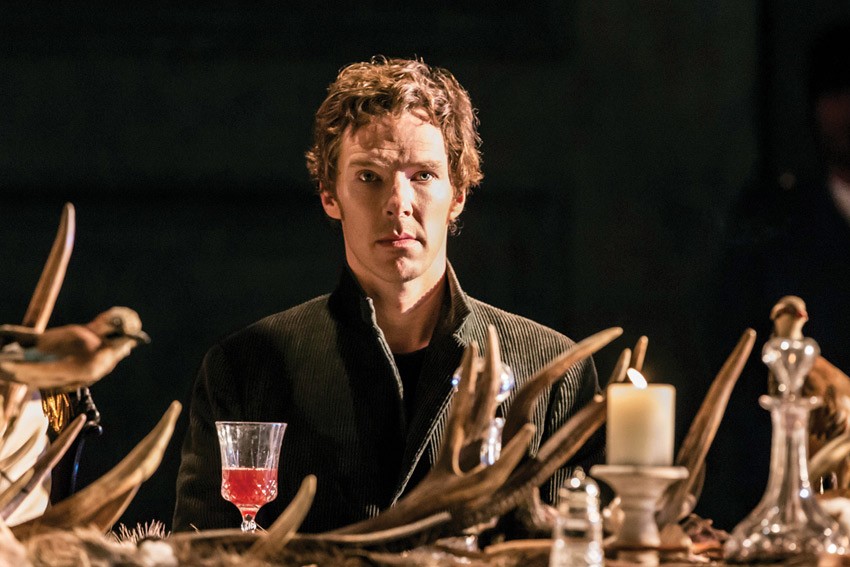Review: Hamlet

Hamlet is simultaneously the most often performed of Shakespeare’s plays, and the one least often performed satisfactorily.
The titular characters in the other blockbuster tragedies are all relatively straightforward; Othello is happy, then jealous, then remorseful; King Lear is foolish, then crazy, then remorseful; Macbeth is bad, then worse, then dead. Hamlet is depressed, then angry, then disaffected, then crazy (but not really), then crazy (but maybe for real), then an unremorseful killer, and then emerges in the fifth act as a man of unparalleled nobility. The most hyped production of Hamlet in recent memory is currently underway. Produced by National Theatre in the UK and broadcast around the world, Adelaideans can watch the performance from the comfort of the Palace Nova. The reason for all the interest is that Benedict Cumberbatch is playing the role of Hamlet. Cumberbatch won his fame by playing the funny, snide elitist (Sherlock, The Imitation Game, Starter for 10), and has the added talent of convincingly getting loud and emotional. If he has a third gear, it isn’t on display in Hamlet, which is a shame, because the text demands it of the actor. In his performance he is both really trying, and very trying. When a scene calls for something other than smarm, Cumberbatch moves into his second gear, and cries at volume. He weeps in virtually every soliloquy. This is a very long play, and Hamlet has rather a lot of soliloquies, and by about the fifth outburst one starts to wonder if Cumberbatch shouldn’t, perhaps, find a few other ways of being expressive. Still he does have a tremendous charisma. His appeal is especially obvious in the scenes with Leo Bill as Horatio, who is so strained that he seems to be losing both his voice and the plot. Kobna Holdbrook-Smith, on the other hand, is a commanding Laertes, even if he too sounds laryngitic. Sian Brooke is an exceptional Ophelia; sometimes an actress will be so grating in the mad scene that one looks forward to the drowning, but Brooke brings an extraordinary sympathetic. Indeed, she is perhaps more sympathetic than Shakespeare intended; she seems to attempt to write a secret note of warning to Hamlet in her spying scene, which is absent from the text. Cumberbatch is very popular, and if this performance gets some young people hooked on Shakespeare then that’s tremendous. It is a shame, though, that much of this performance is so radically reimagined as to no longer really be Shakespeare. The fifth act is not as contrary as Kenneth Branagh’s film version (where Fortinbrass is played like a fascist), but purists will tut nevertheless. Still, it could have been worse; ‘to be or not to be’ was, bizarrely, rearranged so that it opened the play, though this proved unsuccessful, and the experiment was scrapped. Worst of all might be the costuming, which is too clever by half. There’s no consistent theme, or even era. One moment everybody’s decked out like it’s the 19th century, then all of a sudden Cumberbatch is wearing a David Bowie T-shirt. Horatio is dressed as a hipster, and the players in garish 1970s apparel. It’s too distracting to successfully convey anything. After the bows, Cumberbatch asks the audience to make charitable contributions to the Syrian refugee crisis. There are many worthy charities in the world and, aside from trendiness, it is difficult to ascertain why this cause should be grafted onto Hamlet. Perhaps it was to make up for the lack of sympathy in Hamlet’s nasty treatment of the play’s only ‘boat people’, Rosencrantz and Guildenstern.